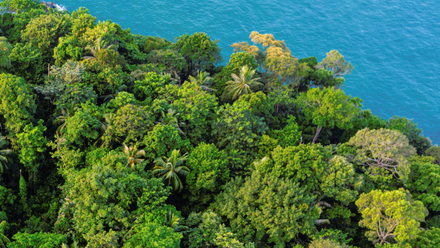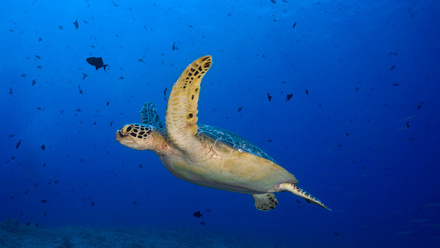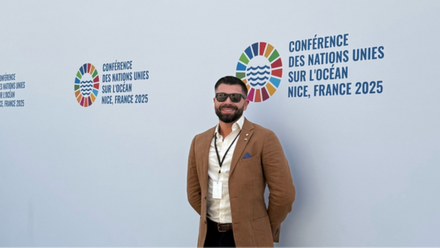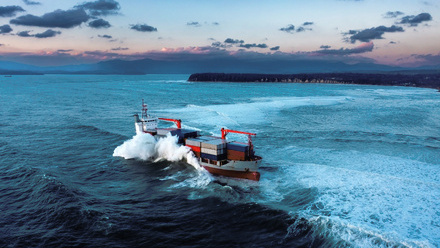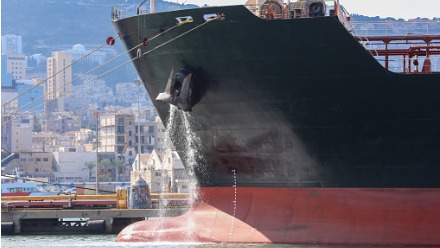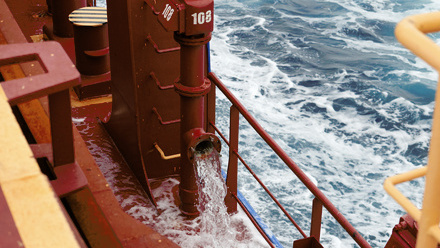IMarEST seeks new partnerships in support of the Commonwealth Blue Charter to drive ocean action
The IMarEST was delighted to have been involved in an intensive partnership forum, co-hosted by the Commonwealth and Bloomberg Philanthropies for ‘champion’ countries that have volunteered to lead action groups tackling ocean issues under the Commonwealth Blue Charter.
The Commonwealth Blue Charter is an agreement by all 53 Commonwealth countries to actively co-operate to solve ocean-related problems and meet commitments for sustainable ocean development.
Representatives from the champion countries heard “pitches” and panels from over 40 potential partners from a variety of sectors including charities, science and research communities, the private sector and civil society.
The IMarEST spoke to the attending countries on its unique position within the marine sector and the range of support it could offer to the action groups, from the networks and expertise of the IMarEST’s diverse and global membership, to knowledge sharing and publishing support, education and training, and capacity building and professional development expertise.
Countries then sought out the best-placed partners to help them address their needs, ambitions and constraints, within the context of the nine currently assembled action groups under the Blue Charter:
- Aquaculture
- Blue Economy
- Commonwealth Clean Ocean Alliance
- Coral Reef Protection and Restoration
- Mangrove Restoration
- Marine Protected Areas
- Ocean Acidification
- Ocean and Climate change
- Ocean Observations
The Institute held discussions with each of the action groups and supplied an information sheet specific to each action group, detailing the range of support and resources it could offer to each individual group’s objectives, as they strive to make headway on varies ocean challenges, by sharing strategies, scaling up best practices and mobilising resources for shared projects.
“The power of partnerships delivers high impact solutions for some of the world’s greatest problems. We really believe that by combining our resources and our tools we are able to use that data to build ocean resilience around the world." Gemma Read head of Bloomberg’s Philanthropy & Engagement for Europe, the Middle East, Africa and Asia-Pacific.
Alain de Comarmond, Principal Secretary of the Department of Environment of Seychelles, added that he was encouraged by the support from such a wide range of potential partners, as well as the teamwork amongst group members.
The UK and Vanuatu, for instance, have rallied 27 member states so far to join their action group on marine plastic pollution, also known as the Commonwealth Clean Ocean Alliance.
The UK is the Commonwealth Chair-in-Office, having chaired the last Commonwealth Heads of Government Meeting in 2018, and has made available £66.4 million for projects that tackle marine litter. It has also joined other action groups on coral reef restoration and protection (co-championed by Australia, Belize and Mauritius), mangrove restoration (led by Sri Lanka), ocean and climate change (led by Fiji) and ocean acidification (led by New Zealand).
“What we are trying to do here is to move the global ocean agenda forward. We hope that these action groups can become effective vehicles to deliver commitments such as the Sustainable Development Goals.” Paulo Kautoke, Senior Director for Trade, Oceans and Natural Resources at the Commonwealth.
The day-long event concluded with a special address from prominent environmental activist Alexandra Cousteau, who urged delegates to “articulate a vision of abundance” and focus on pooling together ideas, technologies and innovations to ensure a vibrant future for the ocean.
The partnerships programme was co-organised with Bloomberg Philanthropies’ Vibrant Oceans initiative, as part of the Commonwealth Blue Charter All Champions meeting held from 18 to 21 June in London.
“I am very excited that the IMarEST is involved with the Blue Charter initiative and hope that the forum will be the start of many prosperous relationships with the action groups, and their relevant Commonwealth countries, that will allow us to forge ongoing partnerships that strive towards the Institute’s vision of a world where marine resources and activities are sustained, managed and developed for the benefit of humanity.” David Loosley, IMarEST Chief Executive

